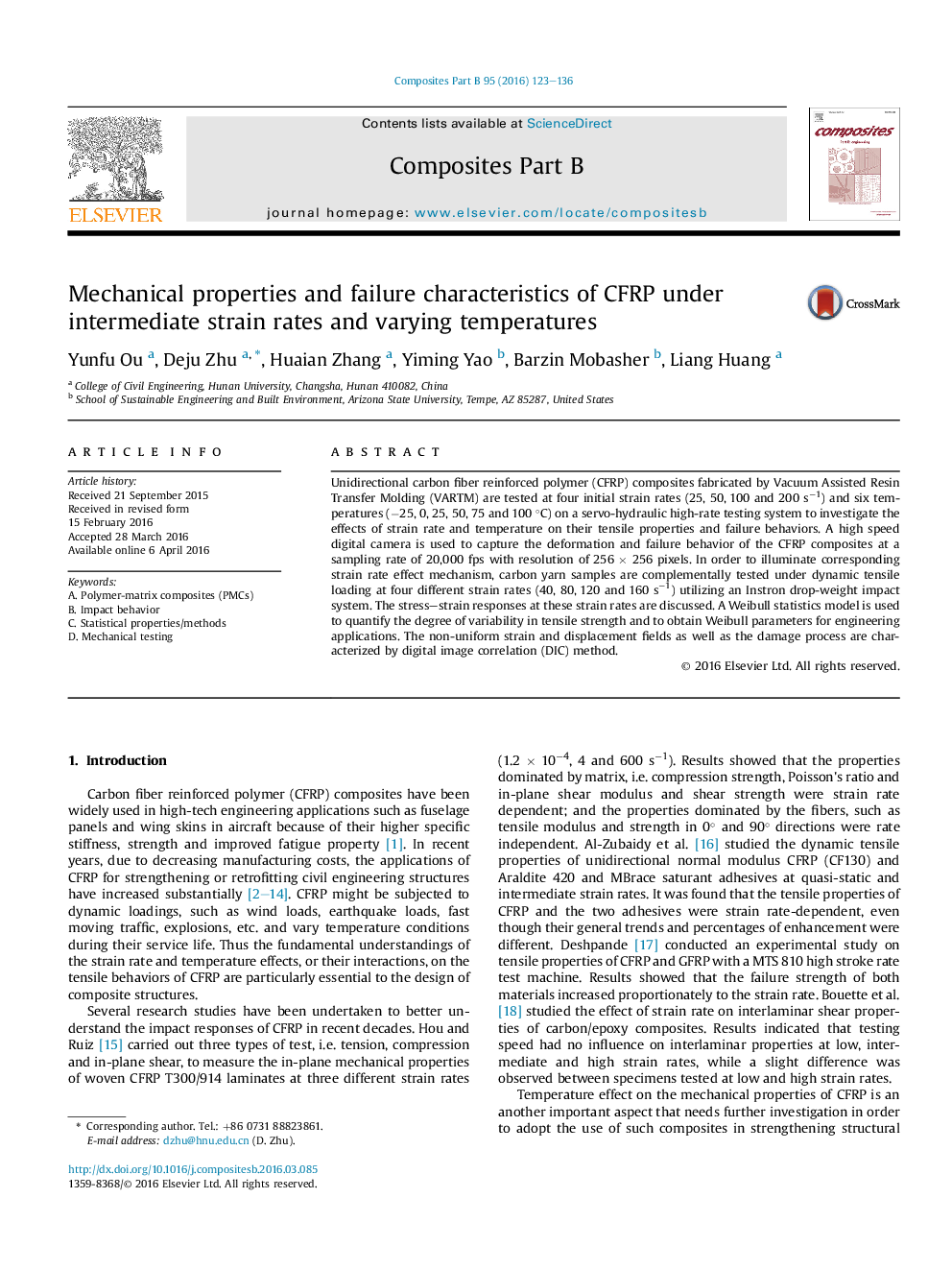| Article ID | Journal | Published Year | Pages | File Type |
|---|---|---|---|---|
| 7212660 | Composites Part B: Engineering | 2016 | 14 Pages |
Abstract
Unidirectional carbon fiber reinforced polymer (CFRP) composites fabricated by Vacuum Assisted Resin Transfer Molding (VARTM) are tested at four initial strain rates (25, 50, 100 and 200 sâ1) and six temperatures (â25, 0, 25, 50, 75 and 100 °C) on a servo-hydraulic high-rate testing system to investigate the effects of strain rate and temperature on their tensile properties and failure behaviors. A high speed digital camera is used to capture the deformation and failure behavior of the CFRP composites at a sampling rate of 20,000 fps with resolution of 256 Ã 256 pixels. In order to illuminate corresponding strain rate effect mechanism, carbon yarn samples are complementally tested under dynamic tensile loading at four different strain rates (40, 80, 120 and 160 sâ1) utilizing an Instron drop-weight impact system. The stress-strain responses at these strain rates are discussed. A Weibull statistics model is used to quantify the degree of variability in tensile strength and to obtain Weibull parameters for engineering applications. The non-uniform strain and displacement fields as well as the damage process are characterized by digital image correlation (DIC) method.
Keywords
Related Topics
Physical Sciences and Engineering
Engineering
Engineering (General)
Authors
Yunfu Ou, Deju Zhu, Huaian Zhang, Yiming Yao, Barzin Mobasher, Liang Huang,
